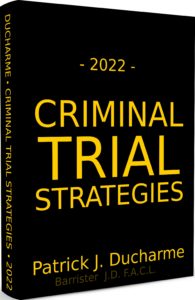The value of an opening address to the jury cannot be overstated. An opening address is even more valuable to trial counsel. Its value is almost too good to be true. It provides an opportunity to state the theory of one’s case clearly, concisely and without interruption. Although counsel in making opening statement is prohibited from argument, only the naïve would fail to recognize that it still provides an ideal opportunity for persuasion.
The rules related to opening addresses, however, are somewhat restrictive. This could be analogized to counsel presenting the jury with a table of contents to a book. Because argument is not permitted in an opening address, counsel is restricted to an outline of the evidence that counsel intends to present by the calling of various witnesses. It is a statement of what a lawyer expects the evidence to be.
Comments by lawyers to the jury are, of course, not evidence. The trial Judge will point this out to the jury in her final instructions. Regardless, opening addresses provide an opportunity for trial counsel to influence the decision of the jury. By providing an effective outline of the evidence anticipated, counsel begins to shape and persuade the jury on the cogency and relevancy of the evidence they are about to hear. Despite the restrictive rules related to opening addresses, delivered effectively, opening addresses remain an important tool of persuasion.
The above is the an excerpt of Patrick J Ducharme’s book, Criminal Trial Strategies, available at Amazon or in bulk through MedicaLegal Publishing.
Read or listen to the Preface and Introduction and subscribe to Patrick Ducharme’s Youtube Channel.

